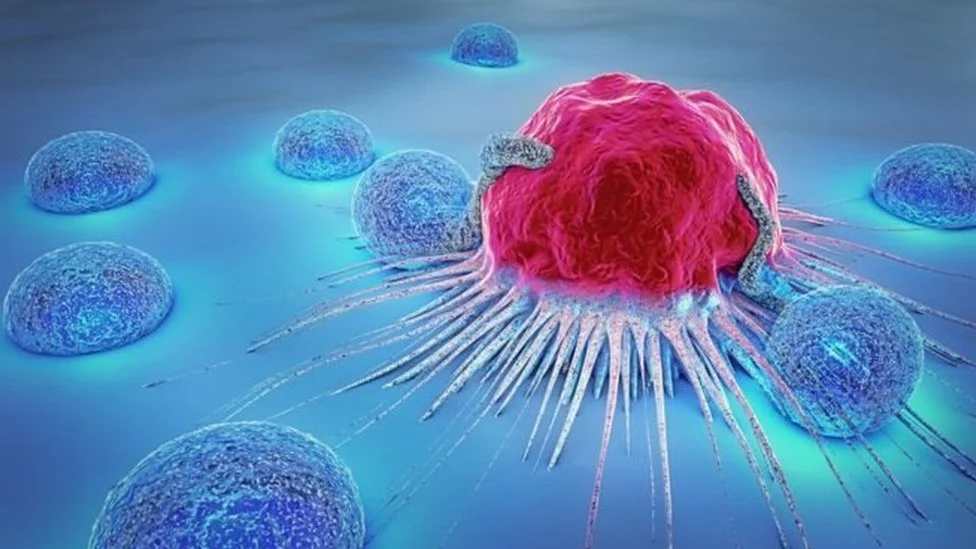Calls for Ukraine
Calls for Europe
Calls for USA

This anti-cancer drug may improve patients’ response to chemotherapy even in treatment-resistant tumors. The drug works by neutralizing a key mechanism that tumors use to protect themselves from treatment. In preclinical models, it has already shown its effectiveness in improving the response to therapy of cancer tumors that are resistant to chemotherapy.
Chemotherapy is one of the most widely used methods of cancer treatment, but it does not always work as effectively as desired. One of the main reasons is that a certain group of the body’s own immune cells acts as a barrier around tumors. These white blood cells, known as macrophages, surround the blood vessels inside tumors and act as guards, blocking the entry of beneficial immune cells and their work to support the response to chemotherapy.
Scientists at King’s College London, who created the spin-off company Aethox Therapeutics, have discovered that these macrophages produce a protein called heme oxygenase-1 (HO-1), which helps protect the tumor from the immune system and block the action of chemotherapy. The new drug KCL-HO-1i targets this protein.
The results of the study are published in the journal Science Translational Medicine.
Professor James Arnold, head of the tumor immunology group at King’s College London, said: “We have discovered that these macrophages play a key role in blocking chemotherapy in cancer. By targeting the enzyme they produce with KCL-HO-1i, we were able to help beneficial immune cells and chemotherapy drugs become significantly more effective. In laboratory models, even tumors that were resistant to chemotherapy began to respond to treatment, which is a truly impressive step forward.”
Unlike many cancer treatments that require hospital visits, KCL-HO1i is designed to be taken at home in pill form between chemotherapy sessions. This makes it easier for patients to incorporate the drug into their treatment plan without additional burdens on the hospital.
In early trials in mice with breast cancer, the drug made tumors more responsive to a range of widely used chemotherapy drugs. These encouraging results suggest that the drug could be used to treat a wide range of cancers and with different chemotherapy methods.
The researchers hope that, with funding, clinical trials for breast cancer and other types of cancer could begin within two years.
Professor James Spicer, Professor of Experimental Oncology at King’s College London, said: “Chemotherapy remains a key part of treatment for many cancer patients, but too often it is not as effective or long-lasting as we would like. This study has identified the main reason for these limitations and has led to the discovery of a drug that we want to test in clinical settings alongside existing chemotherapy drugs.”
If human trials are successful, KCL-HO-1i could become a valuable adjunct to existing cancer treatments, helping more patients benefit from already available treatments and reducing the need for more aggressive cancer treatments in the future.
As this work shows, researchers are learning more about how to better use existing cancer treatments, whether by using them differently or in combination with new drugs. Using combination therapies may help provide patients with improved treatment options more quickly, safely, and cheaply, as some components of the treatment have already been tested and are in use in clinical practice. Although it is still early days, it is very exciting to see this potential new way of depriving tumors of their ability to evade detection by the immune system with a new drug, while simultaneously increasing the effectiveness of chemotherapy, and we look forward to seeing this work continue.
Please rate the work of MedTour
